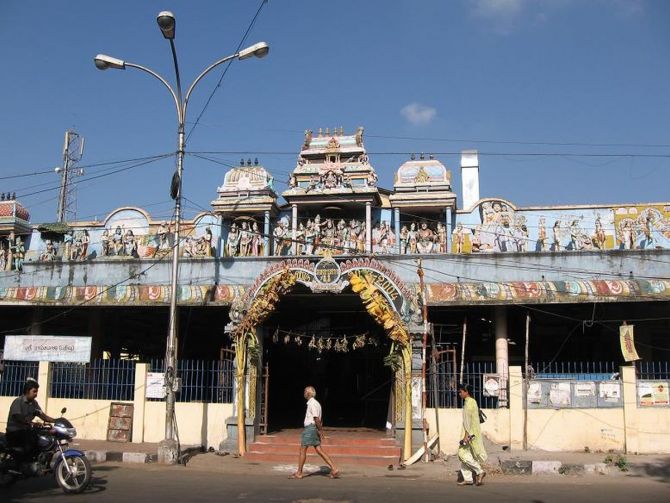The first bench of the Madras high court on Wednesday set aside an order of the Tamil Nadu HR&CE department, which appointed a 'fit' person (thakkar) to administer the Ayodhya Mandapam run by Sri Ram Samaj in West Mambalam in Chennai.

The bench of Chief Justice M N Bhandari and Justice D Bharatha Chakravarthy, also directed the department to hand over the Mandapam back to the Samaj.
The bench was allowing a writ appeal from the Samaj, challenging the orders of a single judge, today.
Originally, following complaints of maladministration and misuse of funds, the HR&CE department passed an order on December 31, 2013, appointing the 'fit' person to the Ayodhya Mandapam.
Challenging this, the Sri Ram Samaj moved the high court with a writ petition in 2014. Dismissing the writ petition on March 17 this year, Justice V M Velumani had refused to decide as to whether the Samaj was a public temple or not.
"There is a dispute with regard to installation of idols and pujas conducted by the petitioner (Samaj) and whether the Samaj is a public temple or not. This disputed question of fact cannot be decided in the writ proceedings. However, it is open to the petitioner (Samaj) to challenge the proceedings before the appropriate forum," the judge had said.
Aggrieved, the samaj preferred the present appeal.
Allowing the appeal, the bench said that Ayodhya Mandapam cannot be brought under the definition of a temple. There are also procedural lapses in appointing the 'fit' person and to take over it. The department failed to prove that idols were installed and worshipped by the devotees. It also failed to prove that the management collected donations.
The mandapam, managed by the Samaj registered under the Societies Act, cannot be brought under the definition of temples. 'Fit' person can be appointed only in the case of temples, the bench pointed out.
It was not proper to dismiss the petition on the grounds of availability of alternative remedy, the bench said and set aside the orders of the single judge.
Moreover, the judge had not considered the merits of the case. Even if an alternative remedy is available, the court can use them only in exceptional circumstances, as per the jurisdiction provided under Article 226 of the Constitution, the bench said.
The bench, however, granted liberty to the department to hold a fresh inquiry by following the procedures. It also directed the Samaj to keep the records clean by auditing the accounts and opting for financial transactions through banks.











 © 2025
© 2025